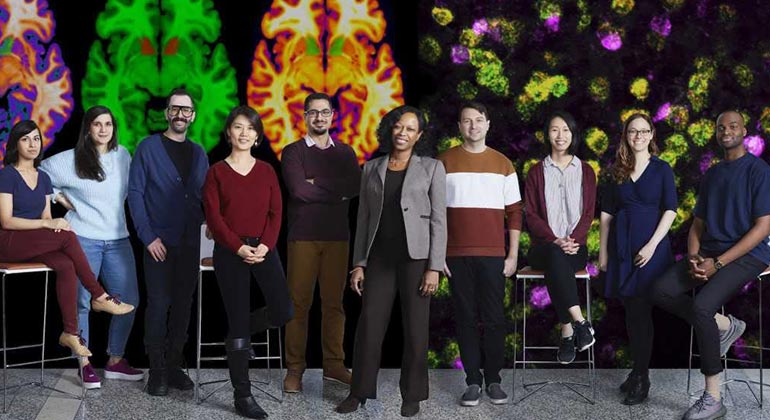
Research
The core mission of the Addiction Institute of Mount Sinai is to improve patient care through enhanced research. A key focus of our research efforts is to expand insights about human biology and population health among individuals with addictive disorders, and to develop novel treatment interventions grounded on sound scientific evidence. An example is our CBD program, which was founded on our preclinical animal studies demonstrating that CBD reduced drug-seeking behavior and normalized neurobiological systems altered by the use of heroin.
Addiction, like other psychiatric illnesses, is a brain disorder. As such, a major component of the basic, translational, and clinical research we conduct is within the neuroscience field and related disciplines anchored within the Friedman Brain Institute at Mount Sinai. The Icahn School of Medicine at Mount Sinai is one of the most internationally renowned institutions for neuroscience research with outstanding scientists in the field of addiction. Our research seeks to reveal the neurobiology underlying different factors contributing to the addiction phenotype such as reward sensitivity, compulsive behavior, inhibitory control, craving, and negative emotional states. Our research also investigates genetic contributions to addiction that not only relate to drug use vulnerability, but even to treatment response. Understanding the impact of drug use and environmental factors on epigenetic mechanisms, i.e., non-genetic factors that influence long-term molecular changes in the brain relevant to addiction risk, are also an integral part of our research objectives. At the Institute, we aim to leverage the knowledge gained from basic and translational research to inform human clinical studies and the development and implementation of novel, effective treatments.
Multidisciplinary Strategies
We conduct comprehensive research, using strategies from many disciplines. Disciplines include genomics, population health service research, infectious disease (e.g., HIV and hepatitis), cardiovascular illness, and cancer. We use tools such as brain imaging, medical and behavioral interventions, and clinical trials. In addition to developing new medicines, we are also exploring novel clinical tools, working with the Drug Discovery Institute at Mount Sinai. We are also exploring how the adolescent brain responds to drugs. We seek to develop early intervention strategies. We hope to be able to prevent addictive disorders.
Addiction is pervasive in our society. We believe that it is treatable, that we can develop strategies to reduce relapse and improve health. As a result, we have a special opportunity to develop new medications and treatments.
Areas of clinical, treatment, and translational research include:
-
Adolescent health
-
Cardiovascular comorbidity
-
Genetics/epigenetics
-
Infectious diseases
-
Medication development
-
Clinical Trials Network (CTN)
-
Neuroimaging
-
Pain
Current Studies
We use integrated research strategies across multiple disciplines including brain imaging, genomics, public health, and clinical trials with pharmacological agents and behavioral interventions. These clinical studies involve outpatient settings, inpatients, neuroimaging, eating disorders, psychosocial factors, and epidemiology and public health. See below for our active projects.
Opioid
-
CTN 0069 Project ED Health – Opioid Use Disorder in the Emergency Department
-
Strategies To Operationalize the Prevention of Overdose Death (STOP OD)
-
Pharmacokinetic Investigation of BSPG Laboratories (BSPG) Cannabidiol in Healthy Participants
Stimulants
-
Targeting neural, behavioral and pharmacological mechanisms of drug memories in cocaine addiction
-
Atherosclerosis in Cocaine Addiction: Imaging Risk with PET/MR
Cannabis
Neuroimaging Studies
-
Computational and Neural Modeling of Cue Reactivity in Addiction (fMRI)
-
Diagnostic and prognostic biomarkers for subtypes of addiction-related circuit dysfunction
Psychosocial
For Investigators
Clinical and Translational Research Related Services
The Addiction Institute of Mount Sinai (AIMS) provides the following services to Mount Sinai investigators conducting addiction-related clinical and translational research:
-
Assistance with new protocol development and administrative research submissions
-
Grant writing guidance
-
Guidance on navigating study regulatory requirements and submissions
-
Help with study subject recruitment
-
Study registration via the Clinical Research Administrative Data Form
For more information about the Institute, AIMS intranet, or to request a service contact AIMS.Research@mssm.edu.
Labs and Programs
Our preclinical, translational, and clinical scientists conduct multidisciplinary research on addiction. We strive to use our research findings to improve clinical practice through our labs and programs.